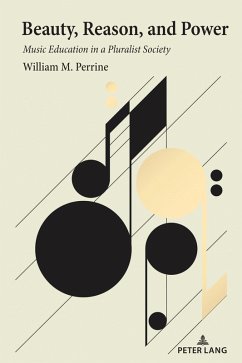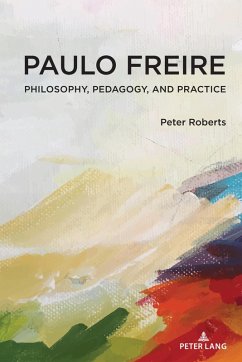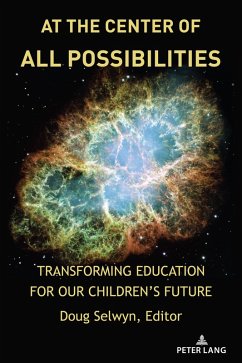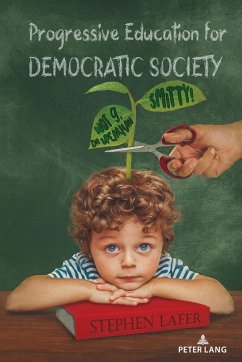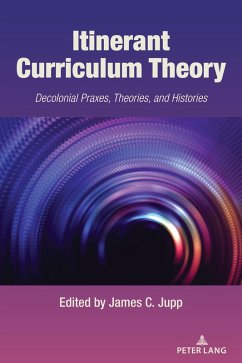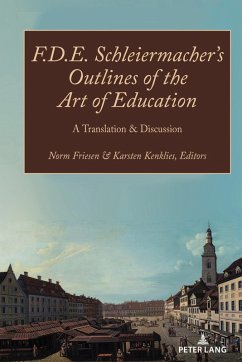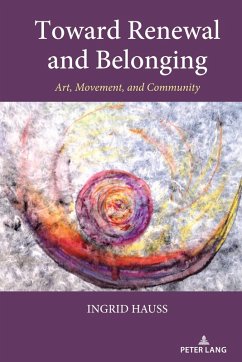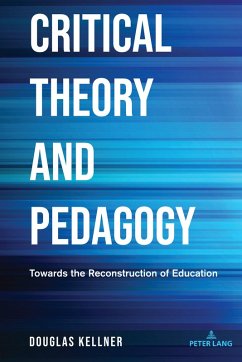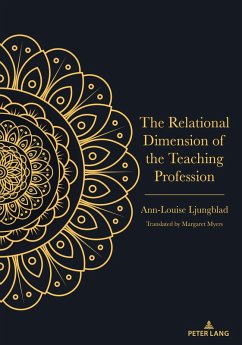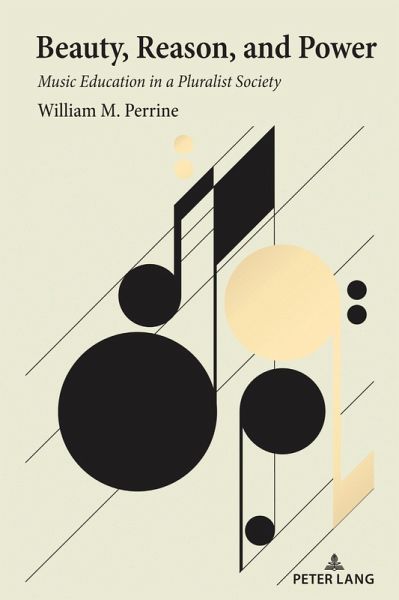
Beauty, Reason, and Power (eBook, PDF)
Music Education in a Pluralist Society
Versandkostenfrei!
Sofort per Download lieferbar
Statt: 56,95 €**
46,95 €
inkl. MwSt.
**Preis der gedruckten Ausgabe (Broschiertes Buch)
Alle Infos zum eBook verschenkenWeitere Ausgaben:

PAYBACK Punkte
23 °P sammeln!
Music, when approached as a part of a classical liberal arts education, is a profoundly humanizing endeavor which can facilitate individual musical and moral growth within communities of practice. A classical approach to music education contrasts with common progressive and critical curriculum frameworks through a philosophically realist analysis. From this perspective, a classical education serves as an induction into the liberal arts as a living tradition of cultural memory rooted in the transcendentals of Truth, Goodness, and Beauty. Further, because a classical liberal arts education is an...
Music, when approached as a part of a classical liberal arts education, is a profoundly humanizing endeavor which can facilitate individual musical and moral growth within communities of practice. A classical approach to music education contrasts with common progressive and critical curriculum frameworks through a philosophically realist analysis. From this perspective, a classical education serves as an induction into the liberal arts as a living tradition of cultural memory rooted in the transcendentals of Truth, Goodness, and Beauty. Further, because a classical liberal arts education is an education in virtue, it equips students to contribute to the common good as a member of their broader communities. Music education, as part of a classical education, can cultivate shared loves across political, religious, or cultural lines in a pluralist society. Studying music allows practitioners to expand the circle of internal goods of a musical tradition while respecting existing individual and community moral commitments. Students learn music classically through ethical apprenticeship, a foundational method of induction into existing musical traditions which draws its pedagogical authority from both the internal standards of the craft and the practice's hierarchical relation to an external moral order. Music education ultimately contributes to the life well lived when it reflects a narrative unity encompassing myth and reason, lived virtuously through the mastery of desire as measured by normative standards that are intrinsically meaningful beyond the limitations of the self.
"Every serious person in music education needs this book. William Perrine, impressively well read and deeply thoughtful, makes the convincing case for a classic liberal, aesthetic music education, and does so in the even-handed way of the true scholar. Perrine's book points the way for the needed renaissance in music education, a rebirth which would revive the importance of art and contemplation in human experience."-Charles Peltz, Director of Wind Ensemble Activities, New England Conservatory
"At long last, a major work that forwards a traditionalist approach to music education, firmly rooted in the core tenets of Classical education and foundational thinkers. Although written primarily with the Western context in mind, its insightful analyses and comprehensive coverage of timeless and transcultural themes like beauty, goodness, and music education as a humanizing enterprise appeals and speaks to a broad array of international readers."-Leonard Tan, Associate Professor of Music at the National Institute of Education, Nanyang Technological University (Singapore)
"Every serious person in music education needs this book. William Perrine, impressively well read and deeply thoughtful, makes the convincing case for a classic liberal, aesthetic music education, and does so in the even-handed way of the true scholar. Perrine's book points the way for the needed renaissance in music education, a rebirth which would revive the importance of art and contemplation in human experience."-Charles Peltz, Director of Wind Ensemble Activities, New England Conservatory
"At long last, a major work that forwards a traditionalist approach to music education, firmly rooted in the core tenets of Classical education and foundational thinkers. Although written primarily with the Western context in mind, its insightful analyses and comprehensive coverage of timeless and transcultural themes like beauty, goodness, and music education as a humanizing enterprise appeals and speaks to a broad array of international readers."-Leonard Tan, Associate Professor of Music at the National Institute of Education, Nanyang Technological University (Singapore)
Dieser Download kann aus rechtlichen Gründen nur mit Rechnungsadresse in A, D ausgeliefert werden.




